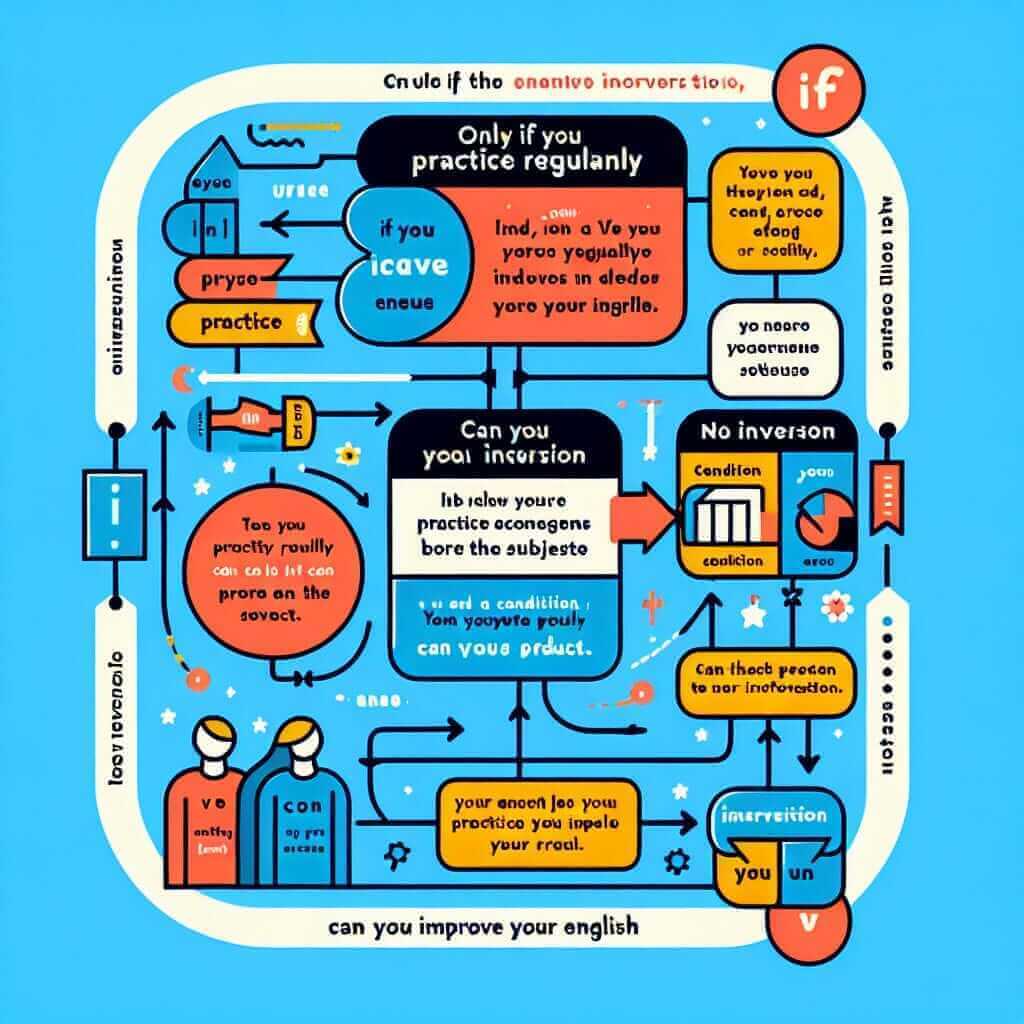Have you ever wondered how to use structures like “Only if you try can you succeed” effectively in your IELTS writing and speaking? This seemingly complex sentence structure, known as inversion, can significantly enhance your grammatical range and boost your band score.
Let’s consider a few examples of how inversion with “only if…” can be used across different sections of the IELTS exam:
Speaking: “Only if governments invest in renewable energy can we combat climate change effectively.” (This demonstrates a strong opinion in Part 3.)
Writing Task 2: “Some argue that only if education is free for all can society truly progress.” (This introduces a viewpoint effectively.)
Listening: You might encounter this structure in a lecture, e.g., “The professor explained that only if the experiment was conducted under strict conditions could they guarantee accurate results.”
Understanding Inversion with “Only if…”
Inversion is a grammatical tool where the normal word order of a sentence (subject-verb) is reversed (verb-subject). We often use it with negative adverbials or restrictive expressions like “only if” to add emphasis and sophistication to our language.
This structure is particularly common in formal and academic writing, making it a valuable asset for achieving a higher IELTS band score. It demonstrates your command of complex grammatical structures and your ability to use language in a nuanced way.
The Formula and Application
Here’s the structure you need to remember:
Only if/when + auxiliary verb + subject + main verb
Example:
- Only if you practice regularly can you improve your English.
Explanation:
- Only if you practice regularly: This sets a strict condition.
- can you improve your English: The auxiliary verb “can” comes before the subject “you,” followed by the main verb “improve.”

Utilizing Inversion for IELTS Success
Writing Task 2
- Presenting an argument: “Only if governments impose stricter regulations on pollution will we see a significant improvement in air quality.”
- Contrasting viewpoints: “While some believe that economic growth should be prioritized, others argue that only if we address social inequality can we achieve genuine prosperity.”
Speaking Part 3
- Expressing strong opinions: “Only if we change our consumption habits can we protect the planet for future generations.”
- Providing nuanced answers: “Well, it’s a complex issue, but I believe that only if individuals take responsibility for their actions can we see real social change.”
Reaching for a Higher Band
- Combining with other structures: “Only by understanding the root causes of poverty, and only if we work together, can we hope to eradicate it completely.” (This combines inversion with “only by” for a stronger effect).
- Using synonyms: Replace “only if” with phrases like “not until,” “only when,” or “on the condition that” to showcase your vocabulary range.
Common Mistakes and How to Avoid Them
- Incorrect word order: Be mindful of placing the auxiliary verb before the subject.
- Incorrect: Only if you study hard, you can succeed.
- Correct: Only if you study hard can you succeed.
- Overuse: Use inversion sparingly to maintain naturalness and clarity in your writing and speaking.
Conclusion
Mastering inversion with “only if…” is a surefire way to impress the IELTS examiner and showcase your advanced grammatical capabilities. By understanding the formula, practicing its application, and being mindful of common errors, you can confidently incorporate this structure into your IELTS writing and speaking, paving the way for a higher band score. Remember to keep practicing and experimenting with this and other complex grammatical structures to achieve fluency and accuracy in your English.